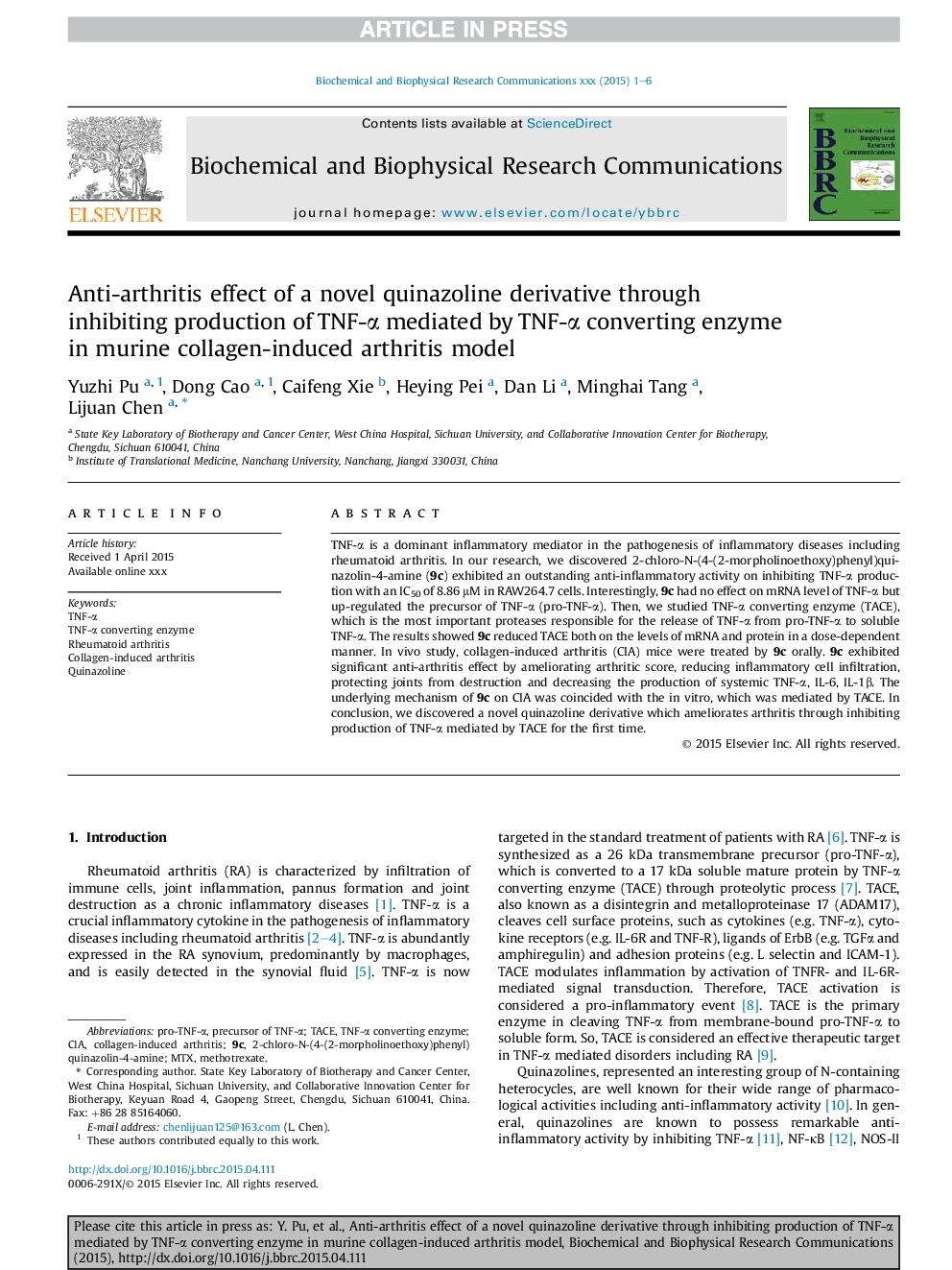| Article ID | Journal | Published Year | Pages | File Type |
|---|---|---|---|---|
| 10751747 | Biochemical and Biophysical Research Communications | 2015 | 6 Pages |
Abstract
TNF-α is a dominant inflammatory mediator in the pathogenesis of inflammatory diseases including rheumatoid arthritis. In our research, we discovered 2-chloro-N-(4-(2-morpholinoethoxy)phenyl)quinazolin-4-amine (9c) exhibited an outstanding anti-inflammatory activity on inhibiting TNF-α production with an IC50 of 8.86 μM in RAW264.7 cells. Interestingly, 9c had no effect on mRNA level of TNF-α but up-regulated the precursor of TNF-α (pro-TNF-α). Then, we studied TNF-α converting enzyme (TACE), which is the most important proteases responsible for the release of TNF-α from pro-TNF-α to soluble TNF-α. The results showed 9c reduced TACE both on the levels of mRNA and protein in a dose-dependent manner. In vivo study, collagen-induced arthritis (CIA) mice were treated by 9c orally. 9c exhibited significant anti-arthritis effect by ameliorating arthritic score, reducing inflammatory cell infiltration, protecting joints from destruction and decreasing the production of systemic TNF-α, IL-6, IL-1β. The underlying mechanism of 9c on CIA was coincided with the in vitro, which was mediated by TACE. In conclusion, we discovered a novel quinazoline derivative which ameliorates arthritis through inhibiting production of TNF-α mediated by TACE for the first time.
Keywords
Related Topics
Life Sciences
Biochemistry, Genetics and Molecular Biology
Biochemistry
Authors
Yuzhi Pu, Dong Cao, Caifeng Xie, Heying Pei, Dan Li, Minghai Tang, Lijuan Chen,
